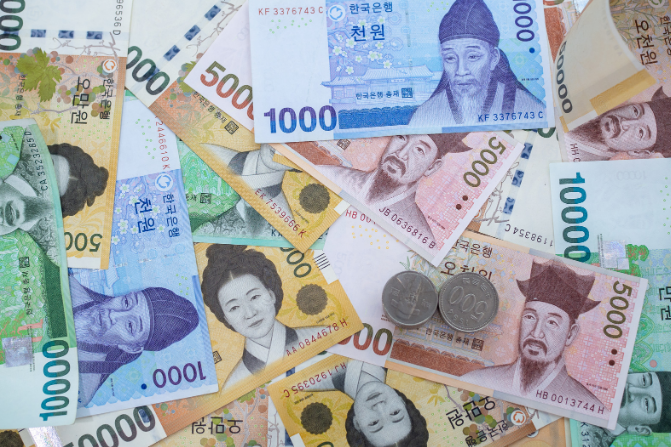
April,20(Agencies)— Asian currencies slipped on Thursday as a cautious mood set in among investors in a subdued market contemplating the implications of an expected interest rate hike by the US Federal Reserve next month.
Thailand’s baht and Malaysia’s ringgit notched small gains, while South Korea’s won depreciated 0.2% to hit a five-month low. The Taiwanese dollar also fell, sinking to its lowest level since mid-March. “The main theme right now is that higher interest rates in major markets including the Fed (in the US) are pressuring Asian currencies,” said Ken Cheung, Chief Asian FX Strategist at Mizuho Bank.
Money markets are now pricing in a more than 90% probability that the Fed will raise interest rates by 25 basis points next month, up from a probability of 81.4% on Monday.
A Fed report showed US economic activity was little changed in recent weeks as employment growth moderated somewhat and price increases appeared to slow.
Elsewhere, China kept its benchmark lending rates unchanged for the eighth straight month in a widely expected move, as the country’s economic recovery reduced the need for any immediate monetary support.
The blue-chip CSI 300 Index was down 0.5%, while the Shanghai Composite Index dropped 0.6%.
Earlier this week, the world’s second-largest economy grew at a faster-than-expected pace in the first quarter, boosted by the end of strict COVID curbs.
But market reaction to the upbeat data was fairly muted, and Asian currencies have, in fact, been largely weaker this week, weighed by a stronger dollar and upward moves in US yields.
The two-year US yield reached 4.286% overnight, the highest level since mid-March.
Taipei’s benchmark index was flat as traders awaited earnings from tech heavyweight Taiwan Semiconductor Manufacturing Co Ltd (TSMC) later in the day.
The chipmaker is expected to post a 5% fall in first-quarter net profit.
Shares in Seoul and Kuala Lumpur declined, while equities in Manila made their biggest single-day gain since April 5. Stocks in Bangkok hit a two-week low.
Meanwhile, Malaysia’s consumer price index (CPI) in March rose 3.4% from a year earlier, compared to a 3.6% growth forecast in a Reuters Poll.

